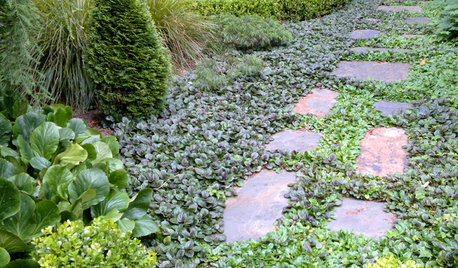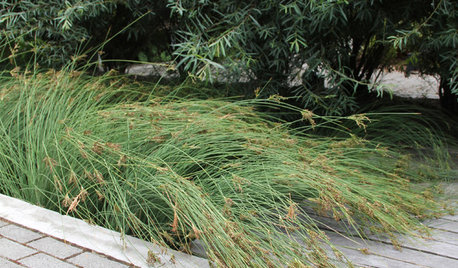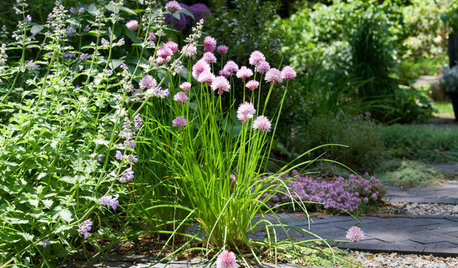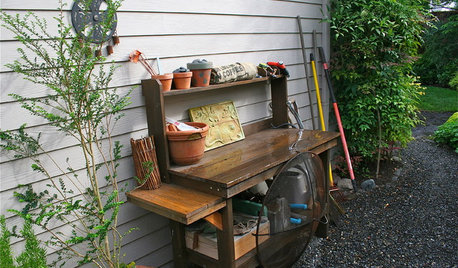Garden with Chlorine Contaminated Soil
trina48386
13 years ago
Featured Answer
Sort by:Oldest
Comments (9)
trina48386
13 years agoRelated Discussions
Planting potatoes contaminate soil?
Comments (4)The only way potatoes could "contaminate the soil" would be if the potatoes were already contaminated with something when planted. Sounds as if your wife "read something" about potatoes infected with Late Blight (as in the Irish Potato Famine in the 1800's) and then either ignored or didn't understand the context of the discussion. Either way, if you use fresh seed potatoes, it isn't relevant. Millions of us grow potatoes in our gardens every year with no problems. Dave...See MoreReclaiming wood-ash contaminated soil
Comments (9)The U of Mass soil test lab will do a general test for $10 and test soluble salts for an additional $5. Maybe that's the best way to know what's going on with your soil now that you've amended it. I have never had a problem with SS, and I add plenty of wood ash to my garden and to the compost pile. More anecdotal info: I have a gardening friend who adds every bit of ash he produces all winter every winter to his garden and he gets great production. I've seen discussions on here about adding all your ash to the compost, and a lot of folks do that. Personally, I wouldn't think of it as a contaminant at all. Your soil test reveals what would be expected -- that the ash raised the ph. (I throw in a band of it with my peas in the spring, since they like high PH). So adding sulphur should have helped bring it down to where you want it. Just don't plant blueberries there :) This post was edited by elisa_Z5 on Thu, Feb 27, 14 at 9:48...See Morelead contaminated soil
Comments (3)My front yard is heavily lead contaminated. I was eliminating lawn and thought it could be an opportunity to plant more food...now I know its status, I'm keeping it to ornamental plants, since they don't care about lead! I have plenty of 'clean' garden out the back, so I wasn't going to try phytoremediation, but I did read a lot about it. It seems to me that it's likely to take years of growing and disposing of phytoremediation plants in toxic waste dumps. Paul Stamets has had good results with oyster mushrooms. From what I've read, lead doesn't travel easily in plant tissue, so the further from the soil and the more processes it must pass through, the more dilute it becomes. So roots, no way, but fruit and seeds...well, I still wouldn't. Kids and animals are REALLY sensitive to lead. If you have children, I'd avoid growing anything in there that will be eaten. The advice I got was to dispose of contaminated soil, and/or build raised beds. I'm generally not a fan of raised beds, but they could be your best option...not the kind of garden you envision, but a garden!...See MoreCA Urban Community Gardens and Soil Contamination
Comments (1)we want to get our soil tested....do you do the testing? we are in sacramento, calif. please contact us if you do....See Moredirtydan
13 years agorockguy
13 years agoKimmsr
13 years agoalphonse
13 years agoDrHorticulture_
13 years agoborderbarb
13 years agotrina48386
13 years ago
Related Stories

GARDENING GUIDESGet the Dirt on Your Garden’s Soil
Understand how your soil supports your plants so you can ensure your garden’s success
Full Story
FARM YOUR YARDHow to Get Good Soil for Your Edible Garden
The nutrients in your soil feed the plants that feed you. Here are tips on getting it right — just in time for planting season
Full Story
GROUND COVERSGround Force: 10 Top Ground Covers for Your Garden
Protect your soil from weeds and drought this summer with a living mulch of ground covers
Full Story
GARDENING GUIDESGet on a Composting Kick (Hello, Free Fertilizer!)
Quit shelling out for pricey substitutes that aren’t even as good. Here’s how to give your soil the best while lightening your trash load
Full Story
GOLD FOLIAGEGreat Design Plant: Hubricht's Bluestar
Billowy, willowy, and with blooms in three seasons, Bluestar makes a cooling, breezy impression in the landscape
Full Story
GARDENING GUIDESProtect a Precious Resource With a Rain Garden
Promote pure water and a beautiful landscape with a garden design that makes the most of the rain
Full Story
EDIBLE GARDENSHow to Grow Your Own Sweet Summer Crops
This guide will help any gardener get started on growing the freshest warm-season veggies and berries for summer
Full Story
EDIBLE GARDENS8 Surefire Vegetables and Herbs for Beginning Gardeners
Learn the edible plants that are popular and easy to grow in a backyard or container garden
Full Story
GREEN BUILDINGHow to Harvest Rainwater for Your Garden
Conserve a vital resource and save money by collecting stormwater for irrigation in a barrel or tank
Full Story
HOUSEKEEPINGHow and Why You Should Clean Your Garden Tools
Avoid rust and extend the life and effectiveness of your blades and spades with these expert tips
Full Story



idaho_gardener